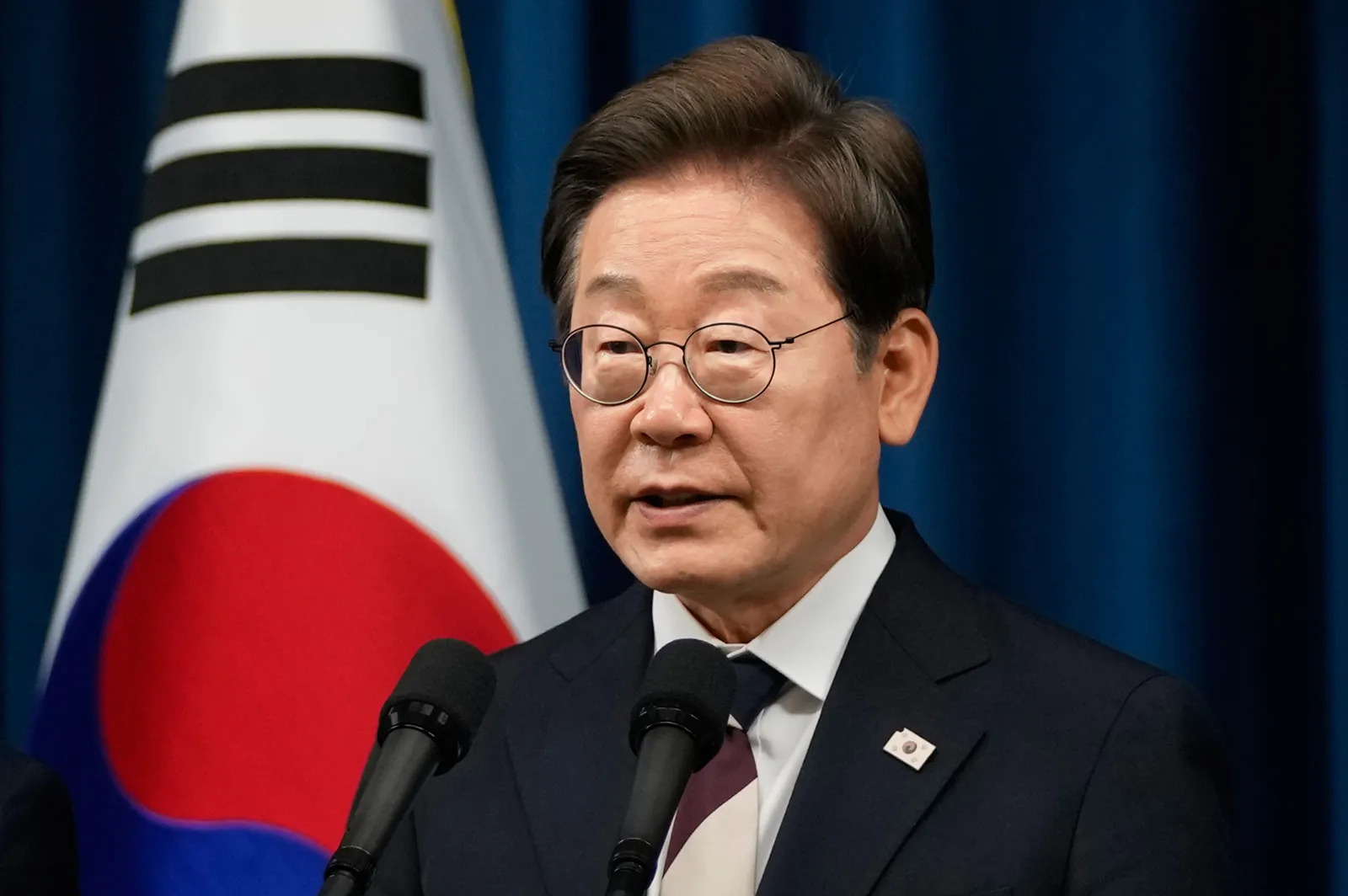The trickiest problem for South Korea’s diplomacy is balancing the country’s relationships with the United States, China and Japan. Success hinges on consistent pragmatism in both domestic and international affairs.

South Korean President Lee Jae-myung speaks after being elected on June 4, 2025.
Lee Jae-myung taking office as the new South Korean President put an end to the six-month political crisis triggered by the December martial law declaration by former President Yoon Suk-yeol. The absence of a president had also resulted in diplomatic inactivity for six months.
During this period, the world witnessed significant changes: Donald Trump’s tariff wars caused global shocks. The U.S.-China and U.S.-Russia relationships each showed signs of a thaw. And China-Japan ties improved as Russia’s strategic alignment with the DPRK deepened. The pace of change might have been disorienting for any new president.
The trickiest problem for the ROK’s diplomacy is balancing its relationships with the United States, China and Japan. Success hinges on consistent pragmatism in both domestic and international affairs.
First, diplomatic pragmatism is needed to achieve domestic political stability and economic recovery. The current unease in South Korean society arises primarily from concerns over economic growth and matters of livelihood, such as healthcare or eldercare. A prominent topic in the recent political debates was poverty among older people. The 40 percent rate of poverty among seniors in the ROK is the highest in the OECD, the rich nations club.
Stagnation in pensions and social welfare reforms have further fueled public anxiety. The population aged 65 and above already exceeds 20 percent in South Korea, and the country is projected to surpass Japan in 15 years to become the most aged in the world. Its fertility rate of a mere 0.75 percent is significantly lower than the even the infamously low rate of birth in Japan (1.15 percent in 2024).
Moreover, affected by multiple external factors, such as global economic restructuring, pandemic shocks and geopolitics, South Korea has seen rising inflation in recent years. Since President Yoon took office, real estate prices have surged by 7 percent. The martial law declaration at the end of last year triggered domestic political turmoil, which, compounded by Trump’s tariff wars, further exacerbated the country’s economic woes.
Pursuing a values/ideology-based foreign policy, the Yoon administration adopted a black-or-white, friend-or-foe approach in external relations, leading to heightened tensions on the Korean Peninsula and negative effects with regard to China. Moreover, there was a significant perception gap between the Yoon administration’s emphasis on North Korea as the most grave threat to national security and the public’s view of domestic economic well-being as the primary source of insecurity. The new president’s foreign policy efforts must be aimed at creating a peaceful and friendly regional environment to support economic development and people’s livelihoods at home.
Second, in the new wave of regional integration, South Korea has come to recognize the usefulness of its relations with China, as well as trilateral cooperation with China and Japan, in upgrading its own economy and improving its people’s living standards. Under the Trump tariffs, countries worldwide are actively advancing regional economic cooperation to mitigate their risks.
Markets are the most scarce resource in the global economy, and U.S. protectionism inevitably forces other economies to seek alternatives outside the American market. China and ASEAN have completed negotiations on version 3.0 of their Free Trade Agreement (CAFTA), signaling the emergence of a massive market of 2 billion people. In May, the first trilateral ASEAN-China-Gulf Cooperation Council summit was held in Kuala Lumpur, indicating a move toward cross-regionalism involving the world’s second- and fifth-largest economies and the leading energy supplier.
In 2023, ASEAN attracted $230 billion in foreign direct investment, accounting for 17 percent of the world total. China got $160 billion and the GCC got $65 billion. Combined, the three shared 35 percent of total FDI globally.
China and ASEAN are each other’s largest trading partner, with a total two-way trade volume of nearly $1 trillion, surpassing the total of China and the United States. Deepening economic ties among these markets is not merely a short-term response to the Trump tariffs but a fundamental restructuring of global power distribution and supply chains.
For the Republic of Korea, the economic complementarity model in which developing countries align their low-cost labor and raw materials toward exports to the U.S. is no longer sustainable. The Korean economy must actively join the new wave of regional integration and reposition itself in restructured global supply chains. Otherwise, its competitiveness will be severely constrained. Improved ties with China and trilateral economic cooperation in East Asia will bring Korea closer to the vast markets of the Global South, thus securing it a favorable position in the ongoing global economic restructuring.
Third, in a politically polarized domestic environment, the new South Korean president’s pragmatic diplomacy will need to have continuity. The broader diplomatic diversification trend does not mean weakening its alliance with the U.S. or completely reversing the previous administration’s pursuit of closer ties with Japan.
Despite the 25 percent additional tariff and the demand for a significant increase in defense spending, the reality remains that the United States is the ROK’s sole strategic ally. The conservative factions remain highly vigilant against any moves that could undermine that alliance or signal closer ties with North Korea, and they are quick to politicize such developments.
Regarding relations with Japan, the new president is likely to strengthen trilateral cooperation with the U.S. and Japan and manage unresolved issues in parallel with them. When taking office, President Lee promised to address state-to-state relations with continuity instead of following his own ideological convictions.
A new president in South Korea presents a major opportunity to restore normalcy and pragmatism to the political and diplomatic landscape, to improve ties with China and improve trilateral cooperation in East Asia. The countervailing forces remain equally strong, though.
